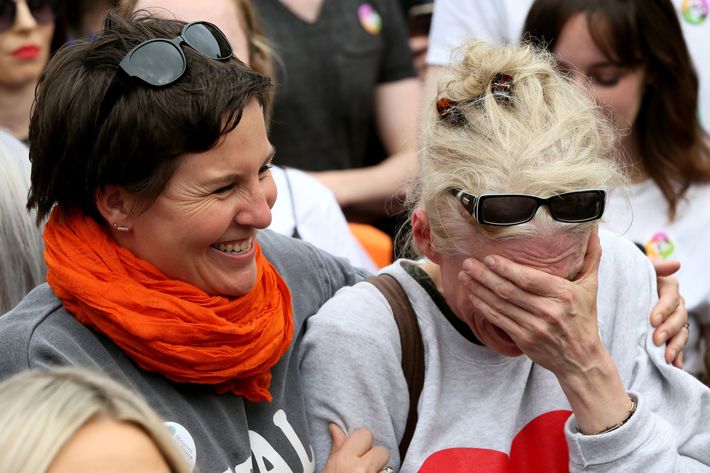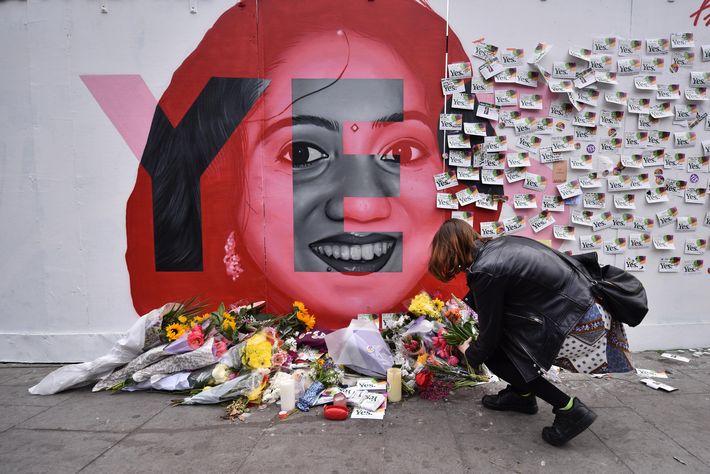
Ireland has voted to repeal its ban on abortion. In what Prime Minister Leo Varadkar called the “culmination of a quiet revolution” over the past few decades, the “Yes” (on repeal) campaign won a landslide victory in a nationwide referendum. The final result, announced early Saturday evening, was 66.4 percent in favor of repeal. Most observers thought the vote was going to be much closer, and Friday’s voting followed months of intense campaigning. Exit polls also showed that both women and men overwhelmingly supported the repeal, and that the majority of the “no” voters were over the age of 65.
“This is about women taking their rightful place in Irish society, finally,” Together for Yes co-director Orla O’Connor explained on Saturday.
The repeal is yet another sign of a surprising liberal shift in the deeply Catholic country, which has also voted to legalize same sex marriage and elect a gay prime minister in recent years. (Varadkar is also the first dual-heritage, and youngest, leader the country has ever had.)

“This has been a great exercise in democracy and the people have spoken and the people have said: We want a modern constitution for a modern country, and that we trust women and that we respect them to make the right decisions and the rights choices about their own health care,” Varadkar added.
In this case, a “more modern country” also means one in which the Roman Catholic Church’s once-strong patriarchal influence over the state and populace continues to wane, even at a time when other parts of Europe have been shifting to the right and far right.
Friday’s vote repealed the Eighth Amendment to Ireland’s Constitution, which was added in 1983 and granted equal rights to unborn fetuses and amounted to an almost complete ban on abortions. As a result, Irish women would wished to terminate their pregnancies had to seek illegal options within the country — at the risk of being thrown in jail for 14 years — or travel abroad. In 2012, the death of 31-year-old dentist Savita Halappanavar — who died from miscarriage complications after being denied an abortion in the country — became a catalyst for the Irish abortion rights movement.

Ireland’s parliament will now be tasked with coming up with new abortion laws, and that’s where opponents of repeal said they would take their fight following the referendum result. The government has proposed allowing abortions in the first 12 weeks of a pregnancy, with exceptions for later terminations in some cases. It has also said that doctors will not be forced to perform abortions under the new laws, and will be allowed to conscientiously object to offering the procedure at their clinics.





